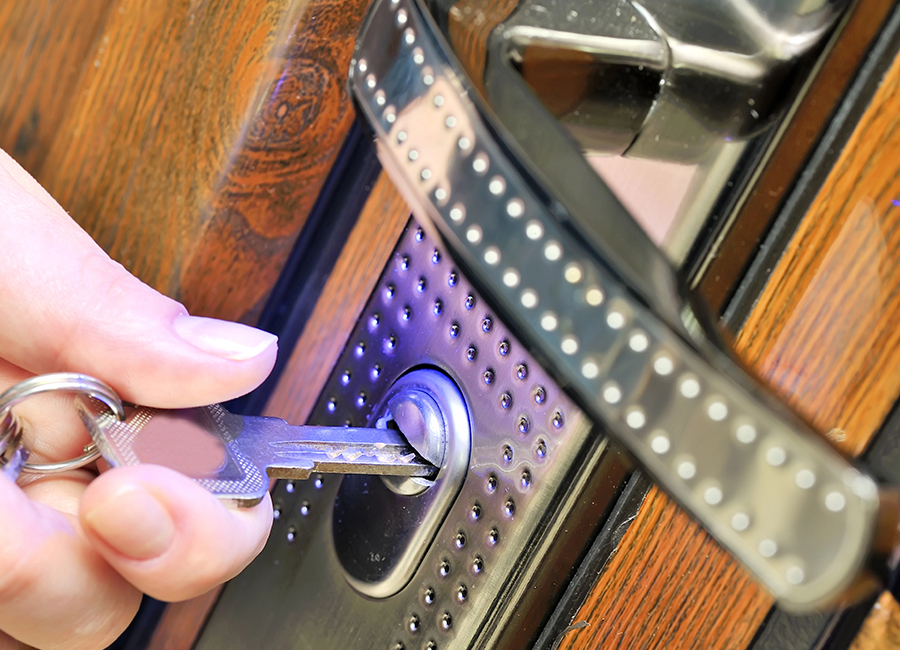Security at home, work, or on the road is more than locking a door. We want to feel safe, but we also need systems that hold up when tested. High-security locks are designed for that balance. They go beyond comfort and deliver practical benefits that protect daily life in ways many people overlook.
The Real Difference Between Standard and High-Security Locks
Many locks look similar from the outside, but the internal build sets them apart. Standard locks are often mass produced with simpler parts, making them easier targets for quick entry tools. High-security locks use hardened steel, restricted keyways, and complex pin systems. These elements slow down forced attempts and make common methods like lock picking or bumping nearly impossible.
What matters most is consistency. With a high-security lock, the chance of failure during a break-in is dramatically reduced. We cannot remove all risk, but we can make a door less appealing to someone looking for an easy target. The time factor alone discourages intruders who usually want speed over struggle.
Protecting More Than Property
When we think about locks, the first thought is usually about protecting belongings. Yet the greater value lies in protecting people. Families in homes, employees at work, and even drivers in their cars all benefit from locks that resist tampering. It is not only about keeping items safe, it is about creating an environment where people feel less vulnerable.
High-security locks also protect personal information. For example, a simple break-in at a workplace could expose records or digital devices. The cost of replacing lost items is high, but the impact of stolen data can be even greater. A reliable system keeps both physical and digital worlds secure. For homes, this means keeping sentimental possessions safe while also making sure the space feels private.
Residential Security and Everyday Use
Our homes should feel like safe zones. Regular locks can keep doors shut, but determined intruders often see them as minimal barriers. A high-security option gives homeowners stronger protection against entry methods that bypass basic hardware. Beyond durability, restricted keys prevent duplicates from being made without permission. This reduces the risk of spare keys floating around without the owner’s knowledge.
Practical use is straightforward as well. These locks are designed for daily handling, so turning the key or engaging the deadbolt is no different than a standard lock. What changes is the reliability behind the mechanism. For homeowners looking at long-term value, exploring residential locksmith Ottawa options makes sense, especially when combined with other layered security choices like reinforced frames.
Commercial Security Needs
Workplaces carry unique challenges. We often deal with multiple staff, sensitive areas, and different levels of access. High-security locks allow us to control who enters specific zones. This is vital for businesses that keep confidential files, valuable inventory, or specialized tools.
Unlike homes, commercial spaces sometimes need locks integrated with master key systems. This means one key might open several doors while other keys open only certain areas. It reduces the need for bulky keyrings while keeping access organized. Stronger locks also resist drilling, prying, and unauthorized duplication. For any business in need of structure and dependability, looking into commercial locksmith Ottawa services ensures that security grows with daily operations.
Vehicles and High-Security Solutions
Cars and trucks are also vulnerable, especially in public places. High-security solutions are not just for doors at home or work. Many vehicles rely on advanced key systems that combine electronic chips with physical components. These systems prevent hot-wiring and reduce the chance of key copying.
If a car key is lost or damaged, it is not as simple as cutting a new piece of metal. High-security keys often require programming to match the vehicle’s system. This process creates a stronger layer of safety for drivers. Our team has seen how small oversights in vehicle security can lead to major issues. Staying ahead with professional help from automotive locksmith Ottawa resources keeps vehicles protected and running without interruption.
Long-Term Cost Benefits
It may seem that investing in high-security locks is only about immediate safety. The reality is that they save money over time. Standard locks often wear out faster, especially if exposed to weather or heavy use. Replacing them frequently adds up. High-security models use better materials and precision engineering, which means they last longer under regular strain.
Insurance providers sometimes consider security upgrades when setting rates. Stronger locks can reduce premiums or help with claims after an incident. While upfront costs are higher, the long-term savings make them a practical choice. More importantly, the value of preventing even one break-in outweighs the price difference.
Why Professional Installation Matters
Even the best lock will fail if not installed correctly. Alignment issues, loose fittings, or weak strike plates undermine the system’s strength. A professional locksmith ensures that everything works together, from the frame to the bolt. They also verify that the lock suits the specific door type and environment.
DIY approaches may seem easy, but hidden mistakes can leave gaps that intruders exploit. Proper installation is about more than tools. It requires knowledge of both the lock mechanism and the structure around it. For people seeking full protection, working with trusted locksmith services Ottawa is the step that makes high-security locks perform as intended.
The Human Factor in Security
Technology is only part of the solution. We also need habits that support safety. A high-security lock is useless if doors are left unlocked or keys are not tracked carefully. We remind our clients that security works best when paired with responsible use. That means locking doors even during short absences and keeping track of who holds authorized keys.
It also means planning for emergencies. High-security systems should be easy for authorized people to use in urgent situations. Balancing safety with accessibility ensures that protection does not turn into a barrier when quick exit is required.
Practical Tips for Choosing the Right Lock
Not every lock fits every door. We suggest starting with an assessment of your needs. Ask how many people require access, what type of building it is, and how often the lock will be used. For doors that face weather, look for weather-resistant models. For interior doors with sensitive files, prioritize tamper resistance and key control.
Think about the future as well. If the property will expand or more users will need access, a system that adapts is better than one that must be replaced. Always weigh function and flexibility together. Asking a locksmith to review these details saves time and prevents costly mistakes.
Taking the Next Step
We know that understanding the value of high-security locks is only the beginning. Putting that knowledge into action is where real safety comes in. If you want to explore the right options for your home, workplace, or vehicle, reach out directly through contact us and we will help create a solution that fits your needs.
FAQs
Do high-security locks stop all break-ins?
No lock can stop every attempt, but high-security locks greatly increase the time and effort required. Most intruders avoid difficult targets, which lowers risk.
Can I upgrade my current door with a high-security lock?
Yes, most standard doors can be upgraded. A locksmith will check the frame, hinges, and fit to ensure the new lock works properly.
Are high-security keys harder to replace?
They require authorized duplication, which prevents random copies from being made. Replacement usually involves showing proof of ownership.
Do businesses benefit more than homeowners from these locks?
Both benefit, but businesses often need extra features like master key systems. This makes high-security locks especially useful in commercial spaces.
How often should locks be checked once installed?
We suggest having them inspected every few years, or sooner if you notice stiffness, wear, or lost keys. Regular maintenance keeps them working as intended.

